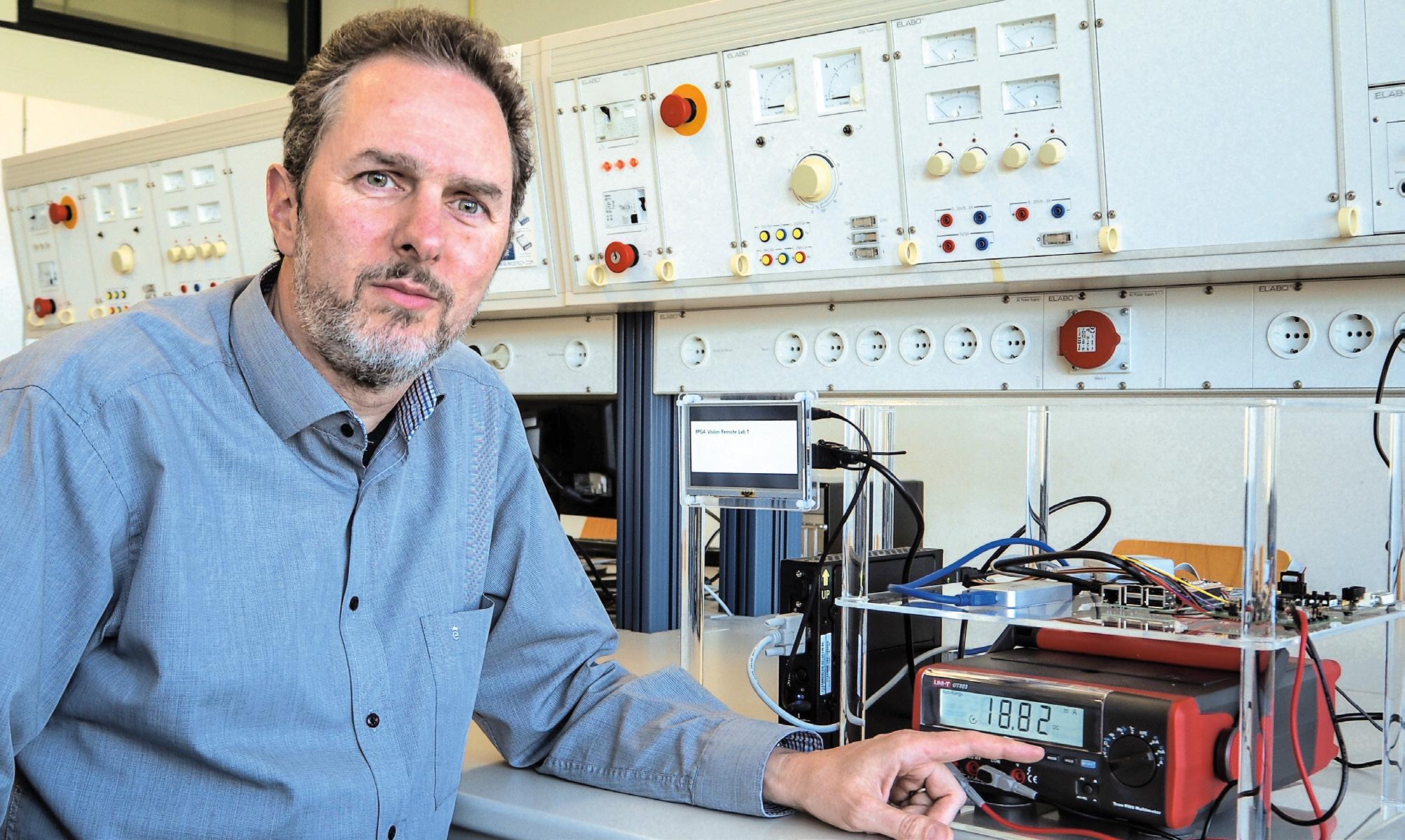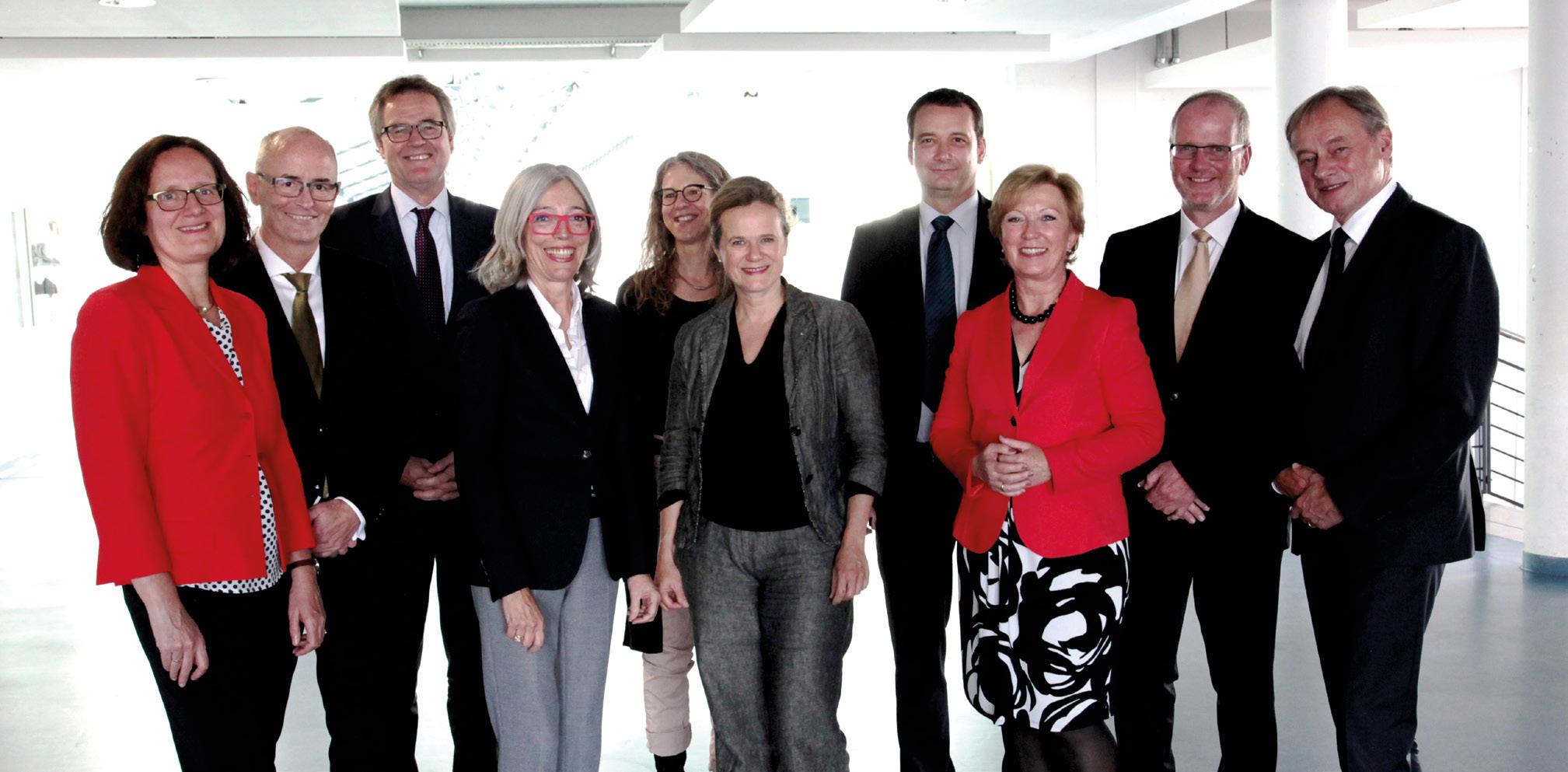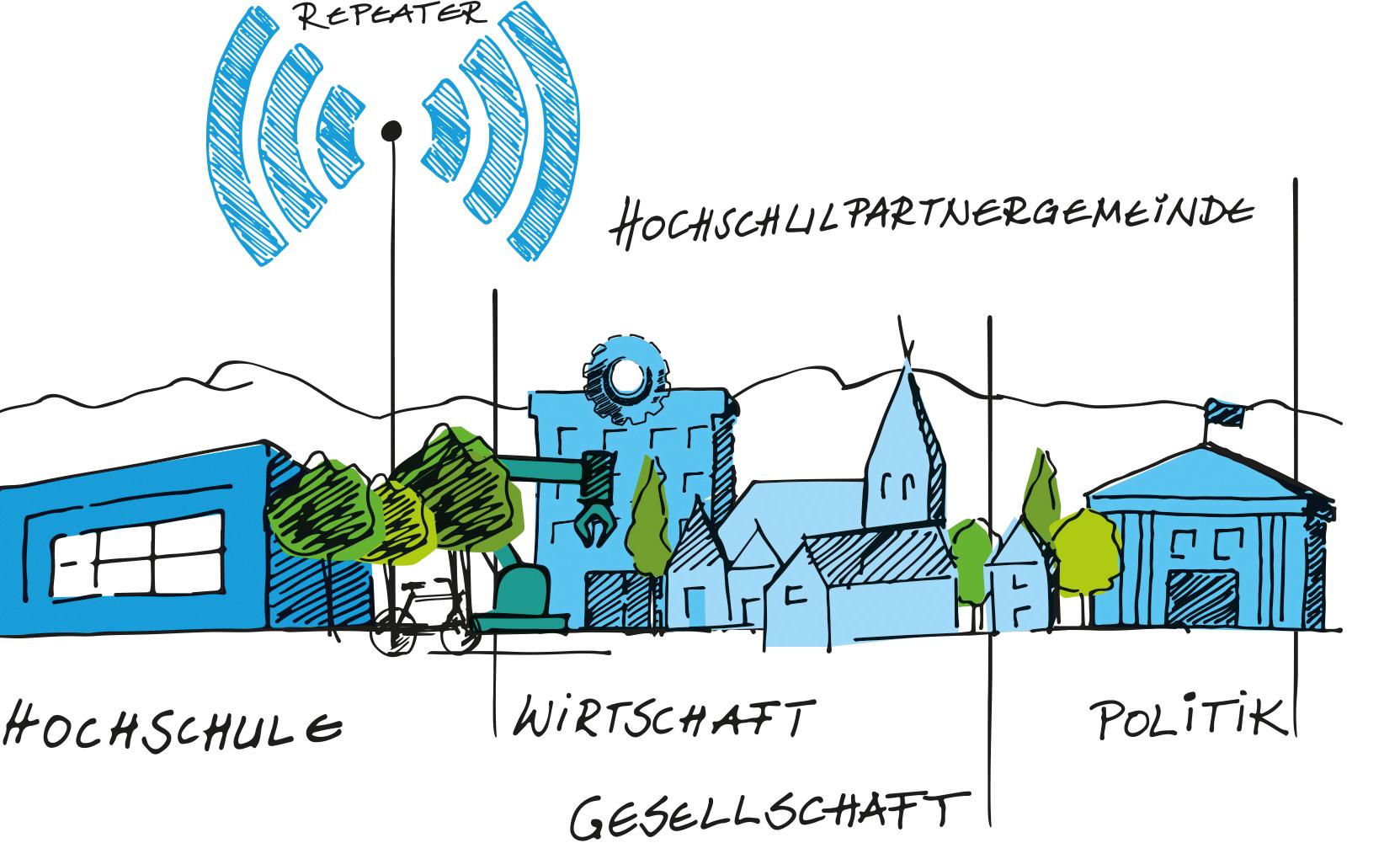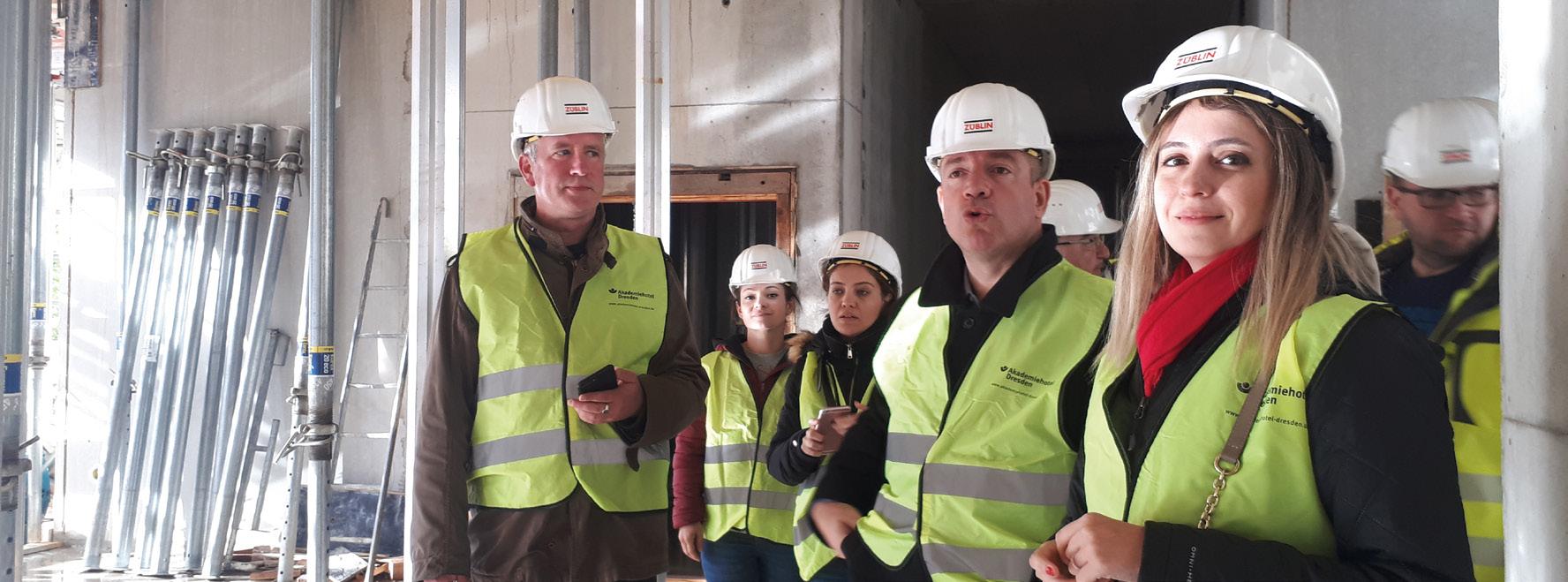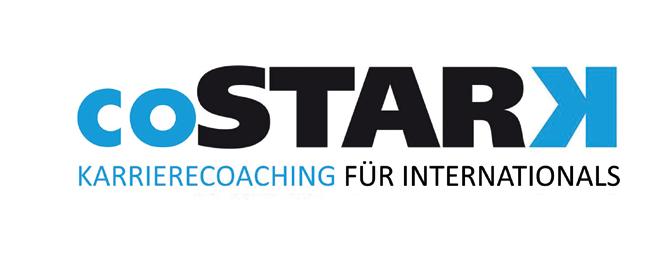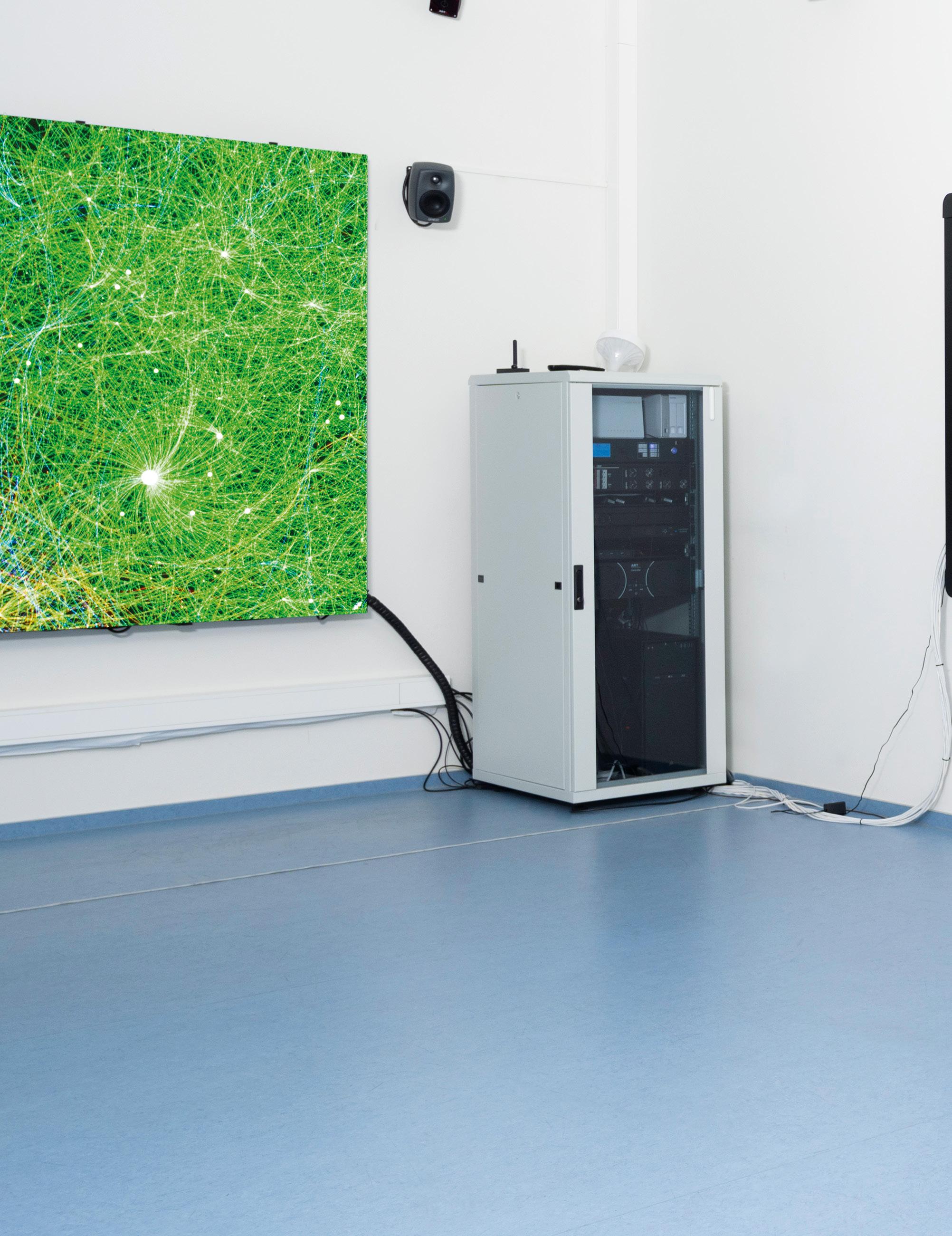
4 minute read
Open doors: lecture series for everyone
Open doors
Lecture series benefit students and university
In university teaching, lecture series are an important supplement to regular teaching, as they are not only intended for students of the respective departments but also open to all interested parties without exception. “Public lecture series bring science into society. The discussion takes place with the involvement of civil society and provides us scientists with important insights”, says Professor Remi Maier-Rigaud from the Department of Social Policy and Social Security Studies. He is responsible for the inter-semester lecture series “Zwischenrufe zur Sozialpolitik” (“Interjections on Social Policy”), one of four lecture series at Hochschule Bonn-Rhein-Sieg – University of Applied Sciences.
Life questions and career prospects
“You have the opportunity to converse with each other in a lecture series; that‘s something very central”, says journalism professor Katharina Seuser. She is in charge of two lecture series, each of which takes a different direction. “Technik- und Umweltethik” (“Technical and Environmental Ethics”) is held annually in the summer semester. In this series, experts from science, media and business discuss with students about technologies and their impact on the environment and the future. “This lecture series for students who deal with technology during their studies supplements knowledge with reflection”, explains Seuser. The ethical discourse is at the centre. “The lecture sets the stage for pondering life‘s questions.” In September 2016, the lecture series was awarded the University Innovation Prize, and since 2019, it can also use the UNESCO logo “Education for Sustainable Development”. Her second lecture series “Zukunft in der Technikkommunikation – Medienprofis präsentieren Arbeitsfelder” (“Future in technical communication – media professionals present fields of work”), focuses on career prospects and entry opportunities. “The professionals describe their personal paths in many very different fields of work. Information is paramount; it is knowledge transfer for orientation”, explains Seuser.
Finally, lecture series are also important for networking with partners in practice and research and for the visibility of the university. Maier-Rigaud adds, “They offer a good opportunity for prospective students to experience the university’s open and lively character.“
Experts from science, media and business discuss what can be done technically to protect the global climate and environment.
„Wir müssen reden … über Ethik in der digitalen Welt“ (“We the digital world”)
Honorary professors from the Centre for Ethics and Responsibility as well as speakers from business, politics and science talk about opportunities, risks and important aspects of digitalisation.
Professionals from the media and communications industry present their fields of work as well as career prospects and entry opportunities for students of technical journalism and visual
Public lecture series
technical communication.
Experts shed light on various sociopolitical topics, ideas and perspectives, organised by the Department of Social Policy and Social Security Studies. Lecture series as life belt
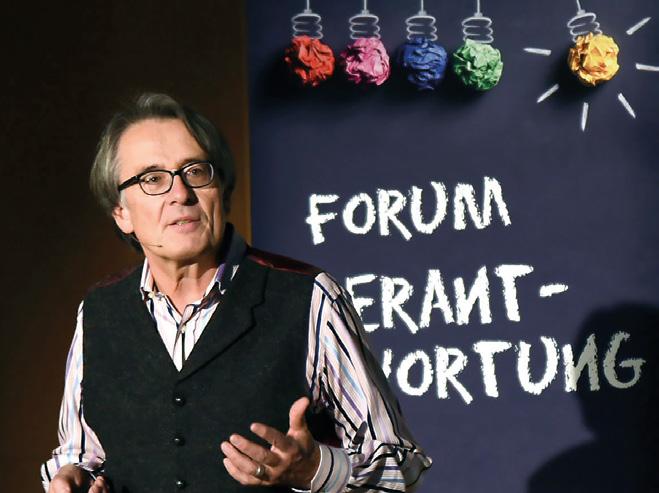
Gert Scobel, TV presenter and Honorary Professor of Interdisciplinarity and Philosophy at H-BRS, sees lecture series as a life belt for a broad-based education. “Most degree courses promote a focused view in a subject area – what is missing is an interdisciplinary approach to volatile problem areas.” He held a lecture in the lecture series “Wir müssen reden … über Ethik in der digitalen Welt” (“We have to talk ... about ethics in the digital world”) during summer semester 2019. “The series addressed ethical questions of life that preoccupy us all. There is much to do, and the sooner we discuss these issues together and look for solutions, the better. It seems to me that even a simple format like a lecture series can help.”
Digital change in university teaching
Several H-BRS professors actively participated in the programme of the HRK-NEXUS conference “Digital Change in Studies and Teaching”. The conference at TU Kaiserslautern focused on the design possibilities and development potential of higher education institutes in the course of digital change. Professor Oliver Ruf gave a talk on the digitalised university from the perspective of a lecturer. Professor Marco Winzker presented “Remote Laboratories in Germany” at a workshop.
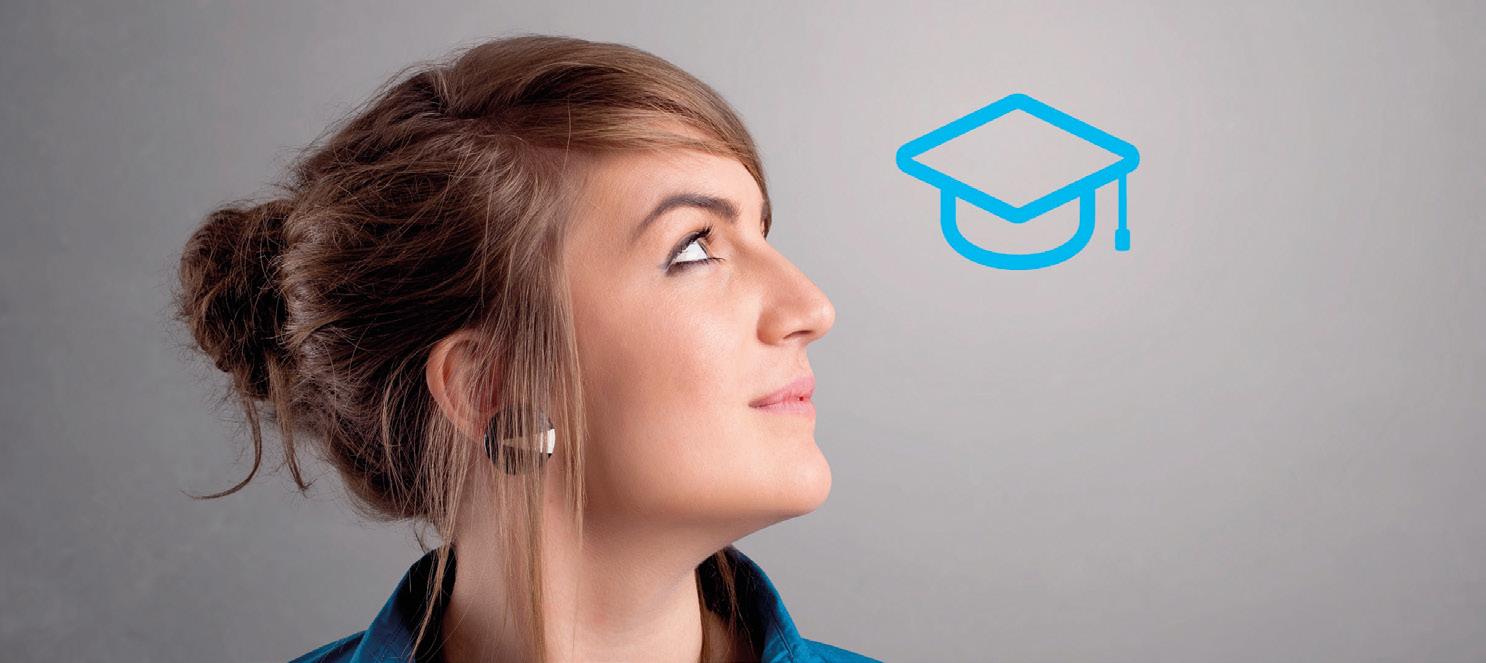
Professor Marco Winzker in the Remote Lab Deutschlandstipendium digital
Applying for a Deutschlandstipendium (“Germany scholarship”) is now easier and quicker because H-BRS has digitalised the application process. Students can apply via the university‘s own student information system SIS. The Germany Scholarship of the Federal Ministry of Education and Research supports particularly talented and committed students at German universities. You will receive 300 euros per month for one year. At H-BRS there are currently 98 recipients.
